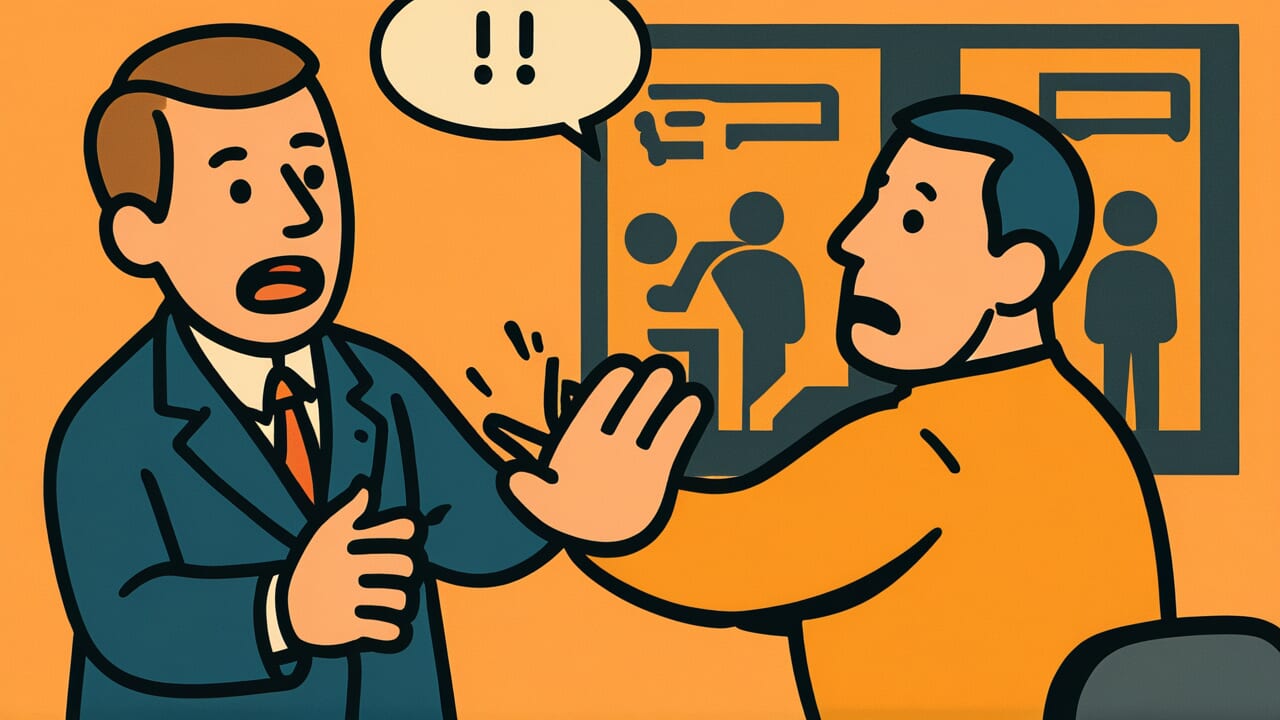How to Read “I hate those who expose others’ faults and call it righteousness”
Abaite motte choku to nasu mono wo nikumu
Meaning of “I hate those who expose others’ faults and call it righteousness”
This proverb means hating people who expose others’ flaws or secrets and claim it as justice or honesty.
At first glance, they seem to be revealing the truth. But their real purpose is to attack others and justify themselves.
This proverb warns against the act of wielding justice to condemn others. It shows that true honesty isn’t about exposing others’ mistakes.
Instead, it’s about living righteously yourself.
Even today, we see people on social media exposing others’ failures or past mistakes. They criticize from a sense of justice.
But this proverb teaches us that such behavior isn’t true justice. Trying to prove your righteousness by pointing out others’ flaws ultimately just hurts people.
It’s really just an act to show your own superiority.
Origin and Etymology
The origin section could not be generated.
Usage Examples
- That person always exposes others’ mistakes and acts righteous, but as “I hate those who expose others’ faults and call it righteousness” says, that attitude itself is the problem
- Even if you think you’re reporting something out of justice, you should carefully consider your motives so you won’t be accused of being someone described in “I hate those who expose others’ faults and call it righteousness”
Universal Wisdom
Humans have a strange psychology. It’s the desire to feel like a righteous person by pointing out others’ flaws.
This proverb sees right through this human nature.
Why do people want to expose others’ mistakes? Because the easiest way to prove your own righteousness is to show someone else’s wrongness.
Improving yourself is difficult and takes time. But dragging others down can be done in an instant.
This proverb has been passed down for thousands of years because this human weakness never changes across time.
In ancient China and in modern Japan, people attack others in the name of justice. And they believe their actions are right.
Our ancestors understood something important. True justice isn’t about putting others down.
It’s about living righteously yourself. People who expose others’ flaws may actually be trying to fill an emptiness inside themselves.
Truly virtuous people don’t need to expose others’ mistakes.
This deep understanding of human nature is the universal value of this proverb.
It acknowledges human weakness while aiming for higher morality. That’s the life wisdom this proverb offers.
When AI Hears This
In information theory, communication channels have limited capacity. The ratio of meaningful information (signal) to meaningless information (noise) determines communication quality.
Exposing others’ secrets and claiming honesty can be understood as severely worsening this signal-to-noise ratio.
For example, in a company meeting, when remarks exposing someone’s past failures (noise) increase instead of discussing problem solutions (signal), the limited meeting time as “channel capacity” gets wasted.
As Shannon, the founder of information theory, showed, when noise increases, the amount of effective information that can be transmitted decreases exponentially.
This means just one additional exposure makes constructive discussion 10 or 20 times harder.
What’s more interesting is that such exposure increases “information entropy.” Entropy is the degree of disorder.
Exposing secrets destroys the order of trust relationships. Everyone becomes defensive and hides their true thoughts.
As a result, truly necessary information stops flowing. The information efficiency of the entire organization collapses.
Confucius intuitively understood this “information system degradation mechanism” 2,500 years ago.
Honesty means increasing useful information, not polluting the channel.
Lessons for Today
This proverb teaches modern people that justice has two faces. One is justice that judges others.
The other is justice that disciplines yourself. And it’s the latter that truly matters.
In today’s social media age, anyone can easily point out others’ mistakes. Anonymously, instantly, to the whole world.
But in those moments, ask yourself this question. “Am I really speaking for justice? Or do I just want to feel righteous by criticizing someone?”
What matters isn’t exposing others’ flaws, but how you live your own life.
Before pointing out someone’s mistake, reflect on your own actions. Before trying to change others, change yourself.
That’s the way of life this proverb shows.
When you feel like speaking about justice, pause and consider whether your words are attacking others.
True strength isn’t in blaming others, but in improving yourself.
If you do this, trust and respect will naturally gather around you.



Comments